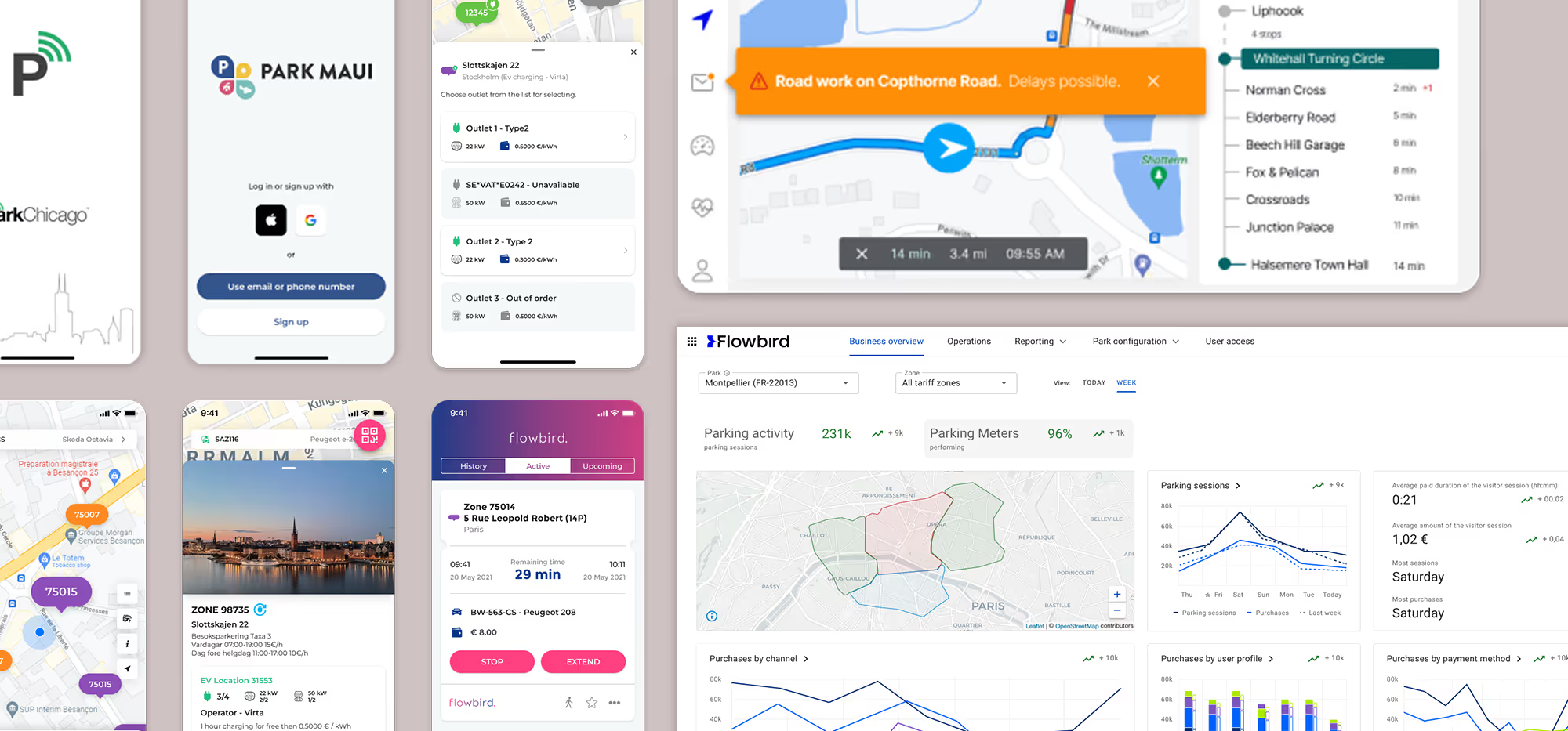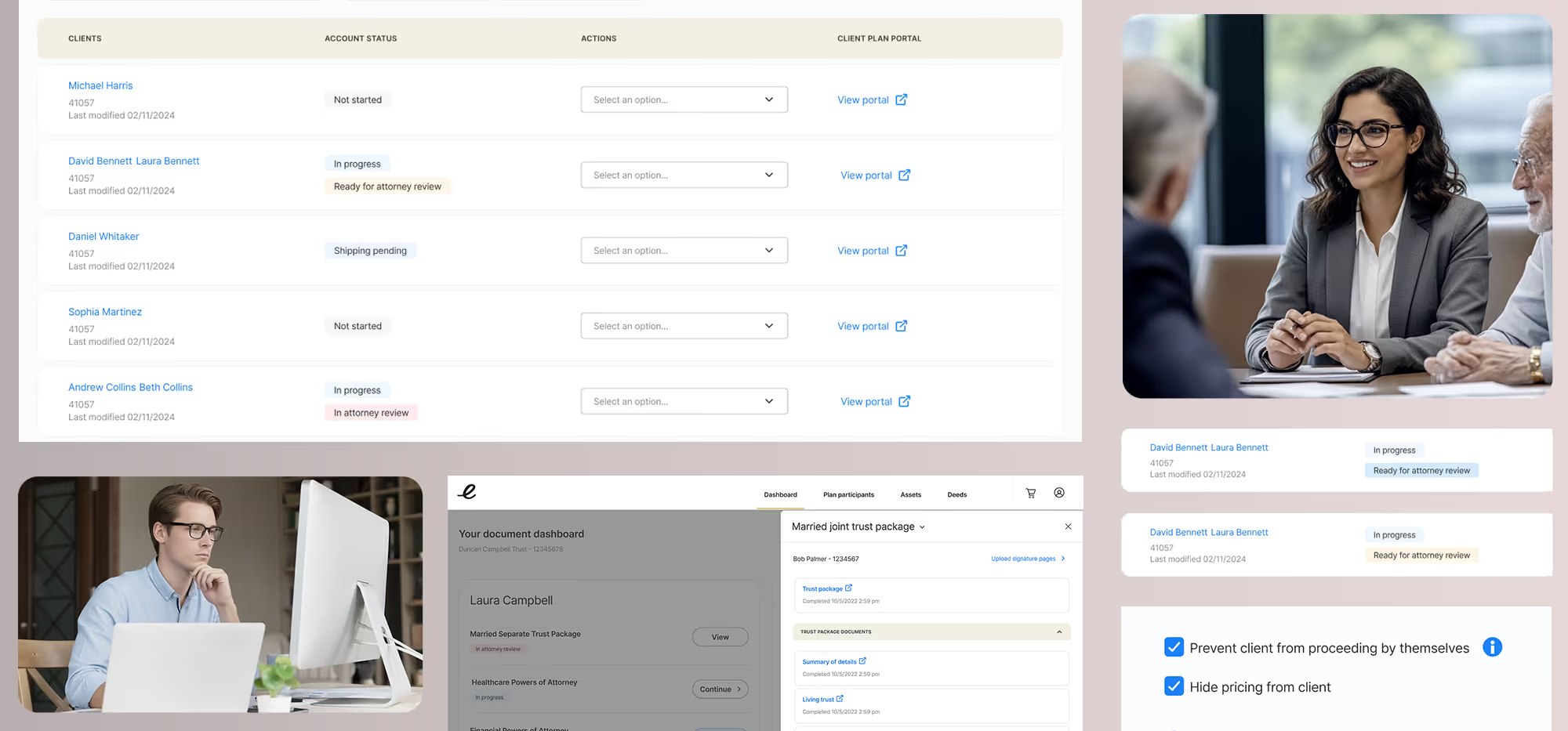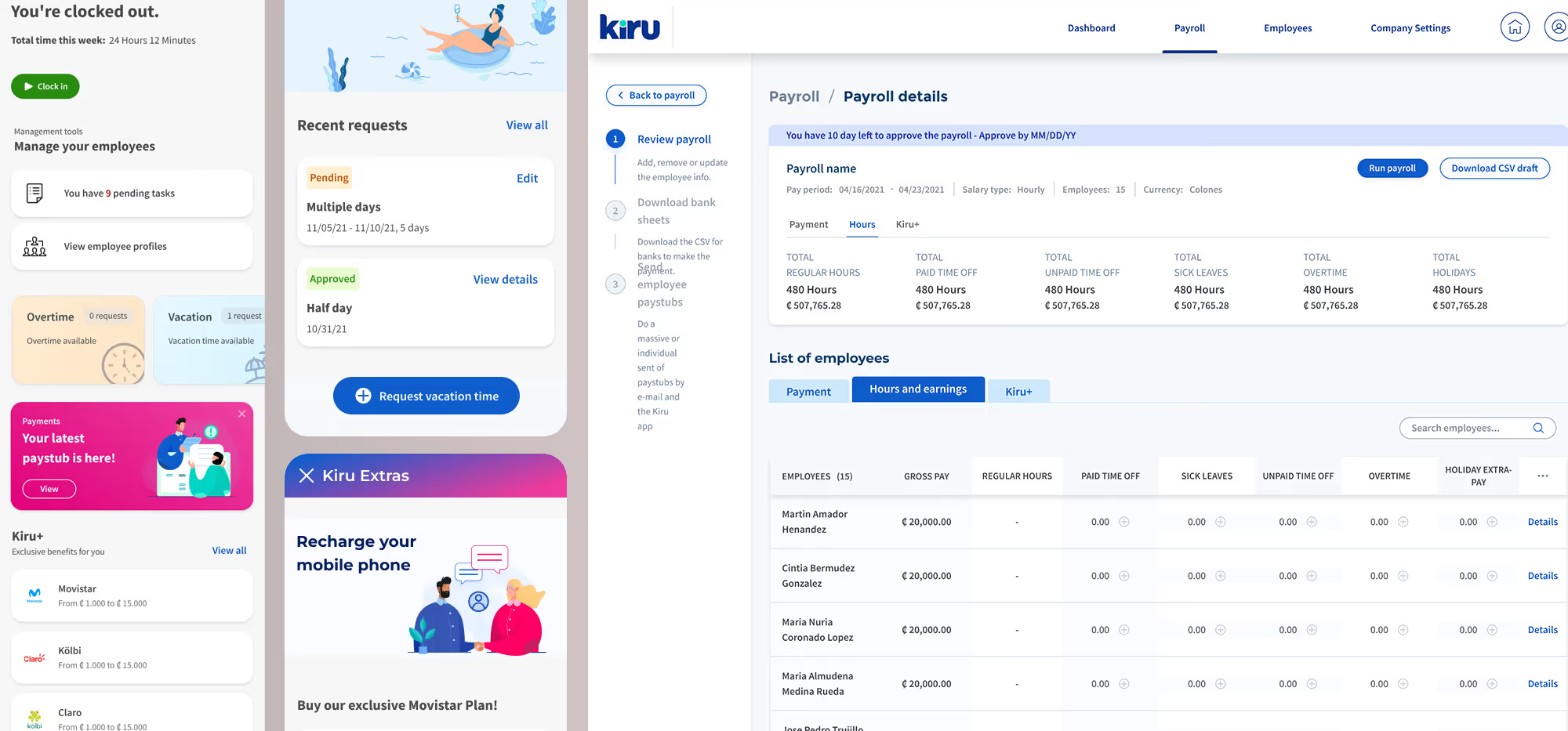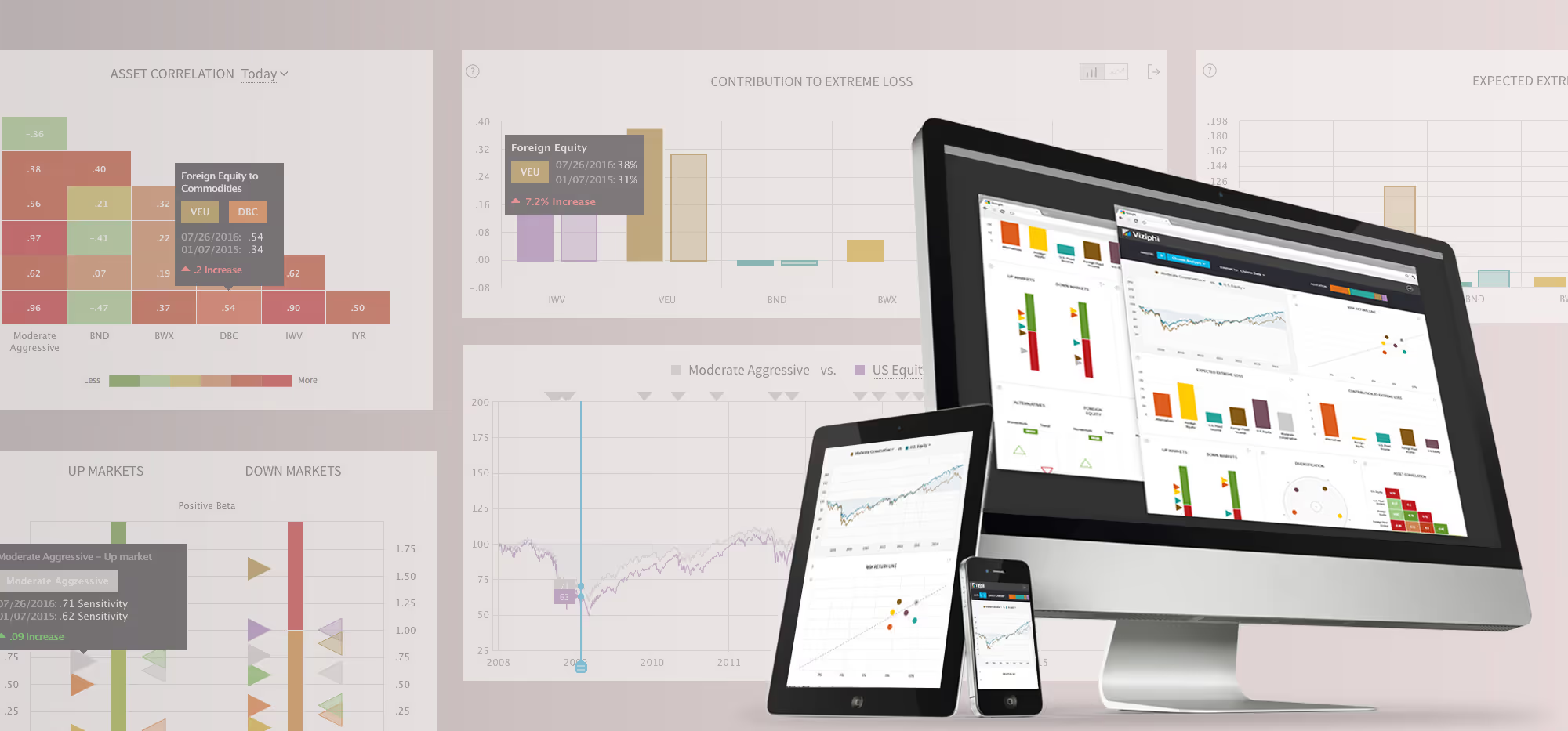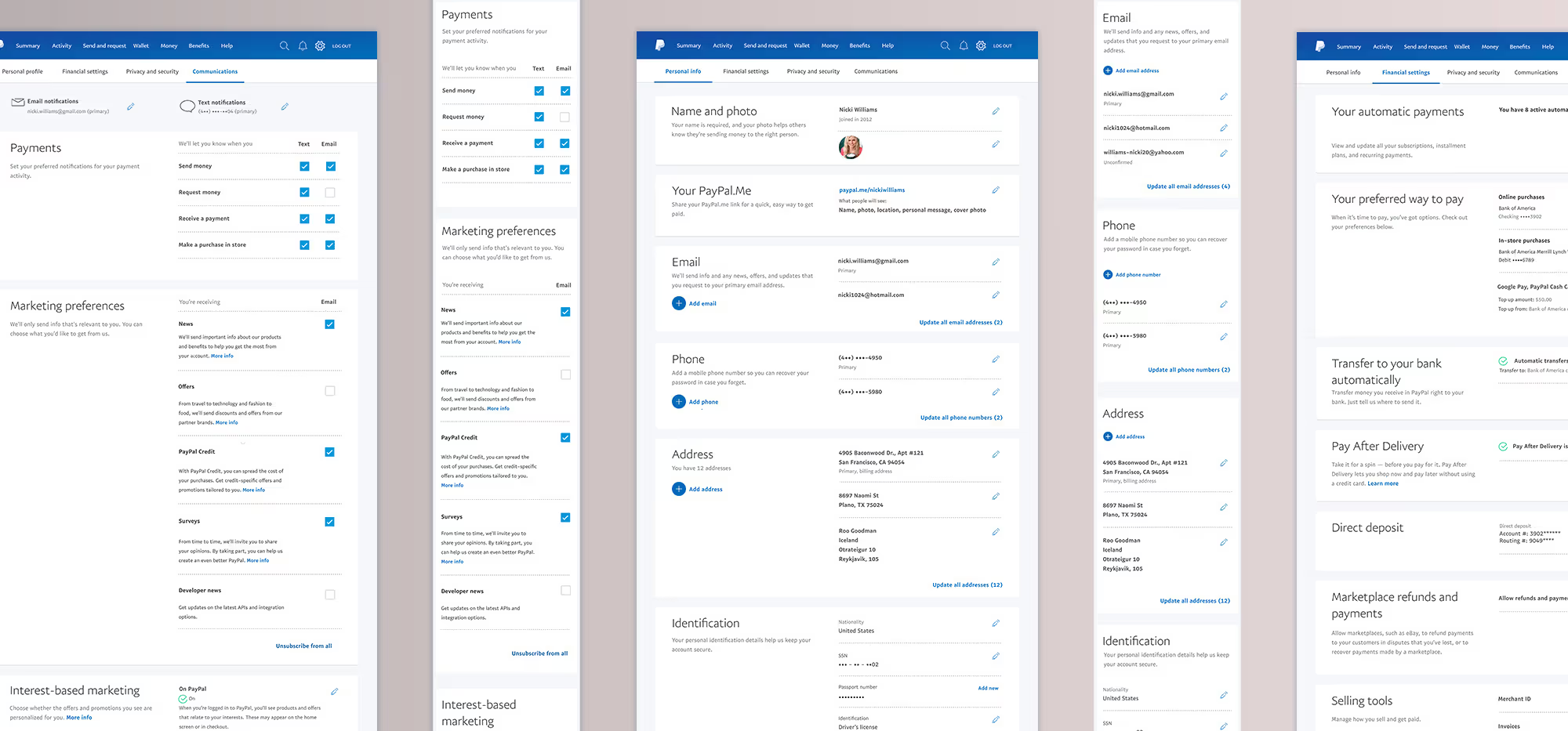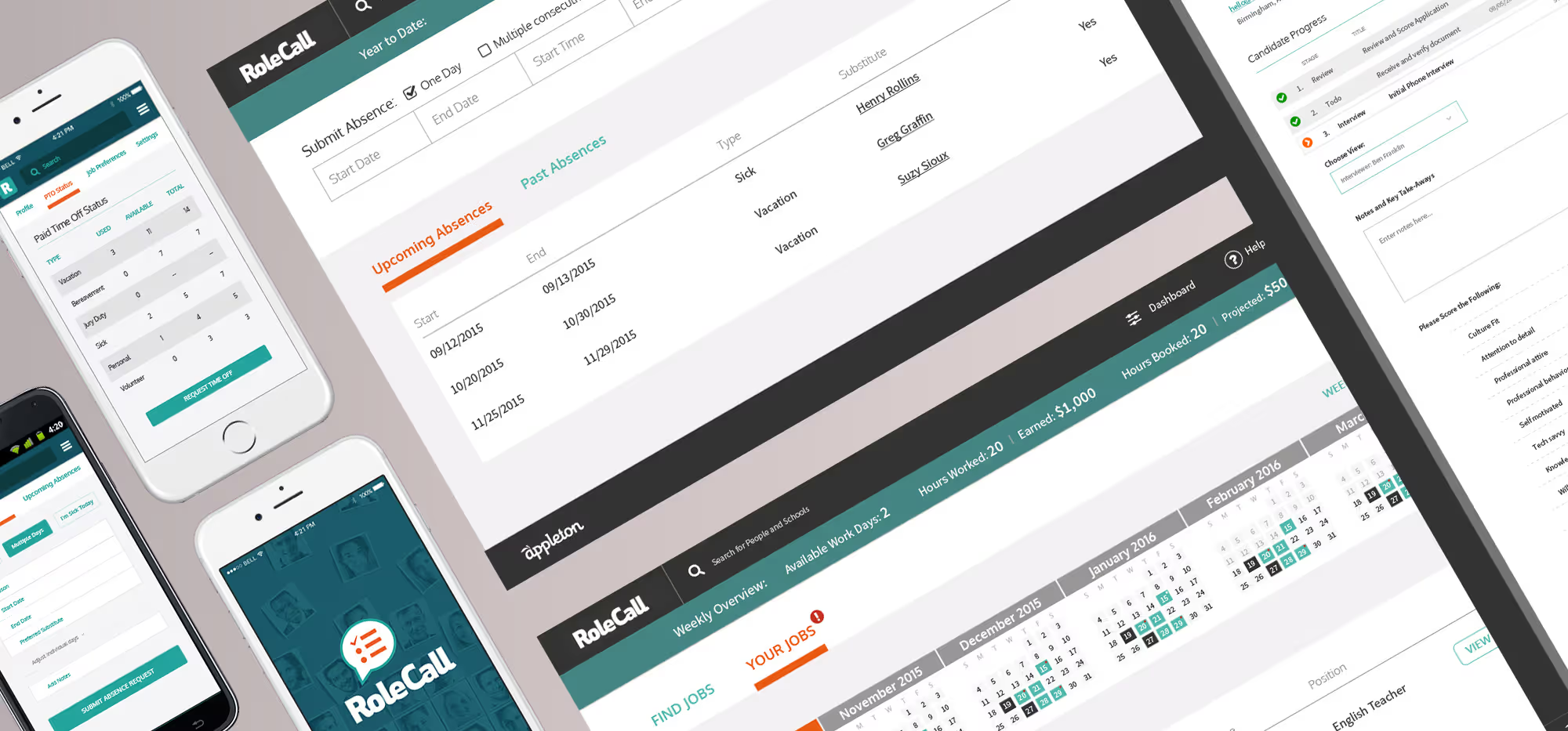Appleton Talent: RoleCall
A custom time, attendance, and substitute management platform that streamlined job assignments, simplified onboarding, and delivered actionable data to improve fill rates.
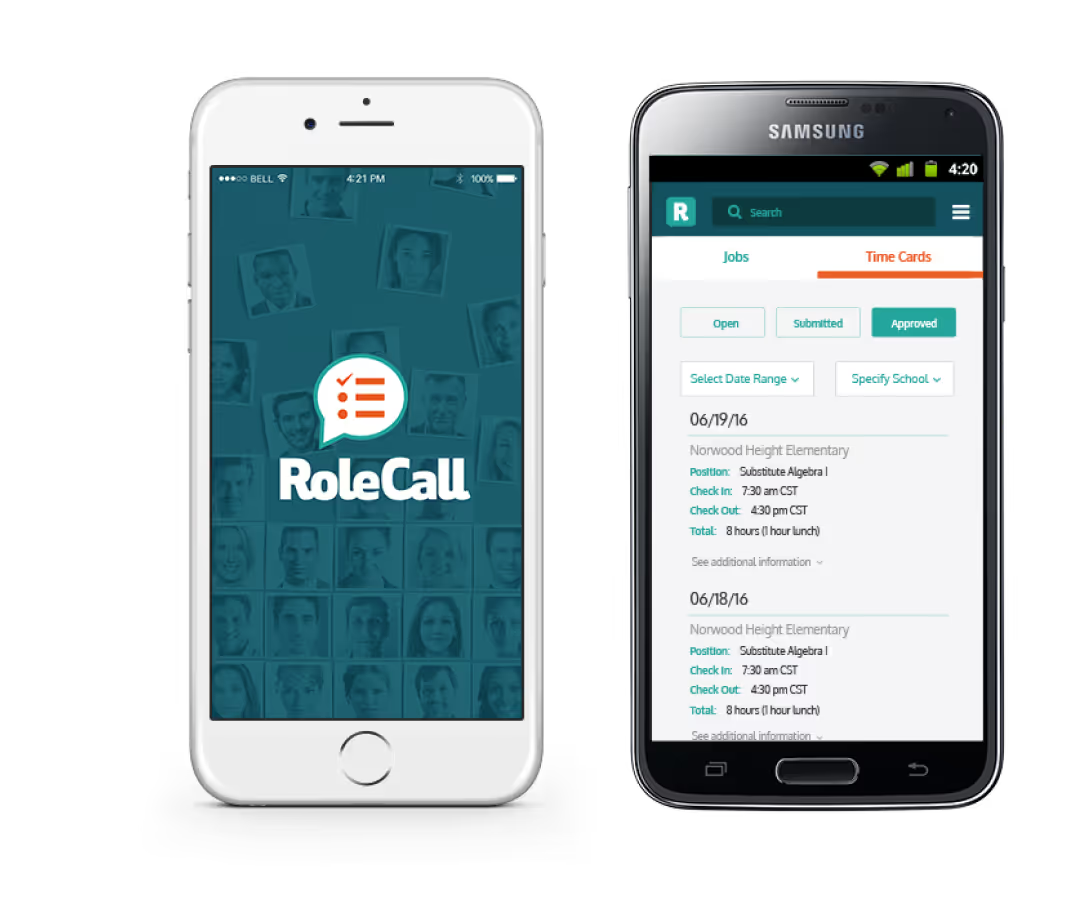
Redefining Workforce Management for K–12 Education
The Client
Appleton Talent specializes in customizable talent acquisition and management solutions for educational institutions and companies.
The Challenge
As Appleton’s K–12 temporary employee placement services expanded in 2015, their existing software couldn’t keep up. Districts faced low fill rates, inefficient matching of substitutes to open positions, cumbersome onboarding, and limited access to actionable data. No comprehensive, user-friendly solution existed in the market to address these challenges.
The Opportunity
Appleton saw the potential to build a smarter, unified time, attendance, and substitute management platform—one that would streamline staffing workflows, improve communication, and drastically increase fill rates across districts.
The Solution: RoleCall
RoleCall is an intuitive, data-driven workforce management system designed to simplify absence creation, job matching, and substitute placement. The platform provides clear visibility across all stakeholders—employees, substitutes, and administrators—creating a seamless, transparent experience that saves time and increases efficiency.
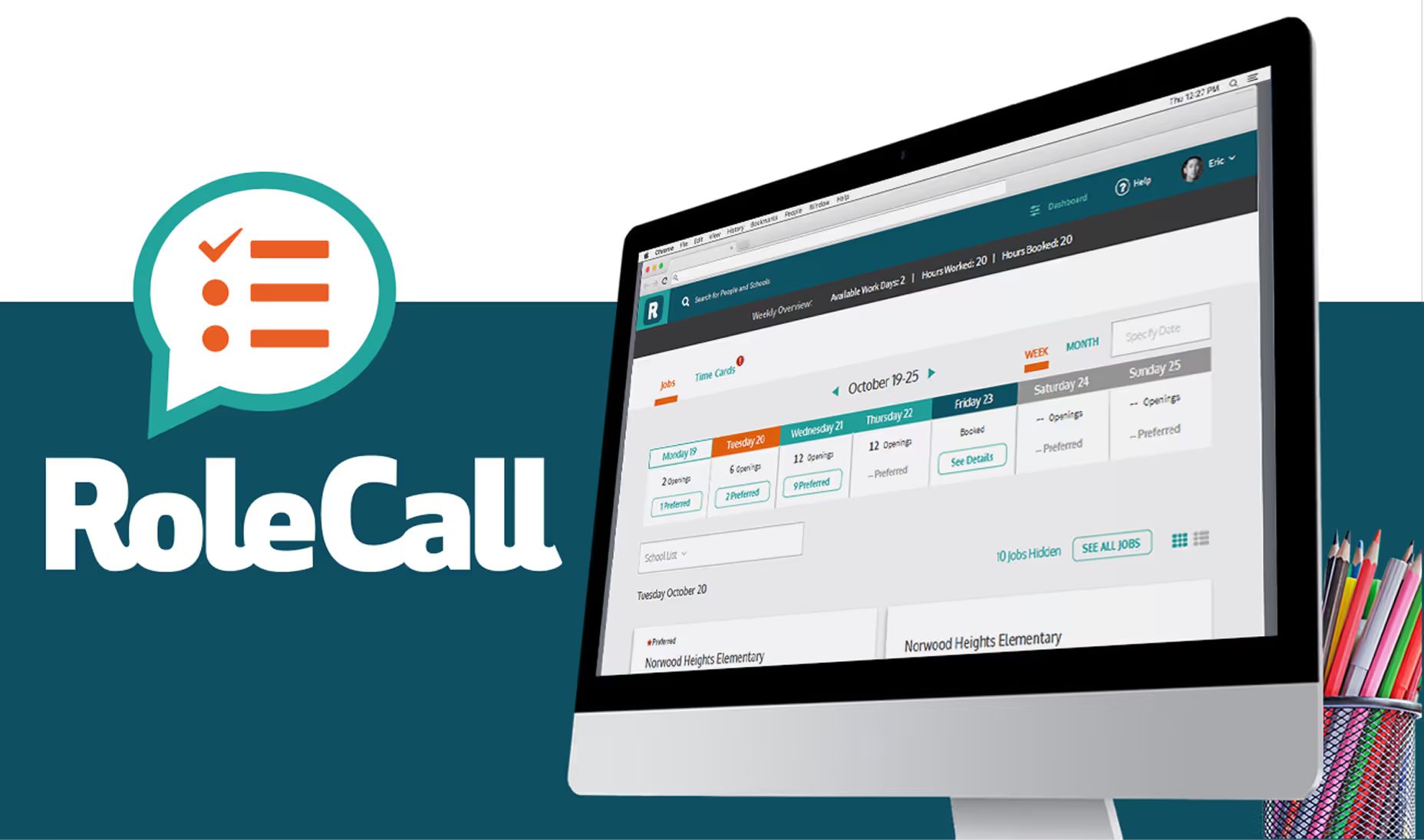
The Outcomes
Through deep user research and a collaborative design process, RoleCall transformed how K–12 districts manage workforce logistics—simplifying absence submissions, improving substitute matching, and delivering powerful, actionable data.
→ 97% fill rate achieved across districts
→ Significant time and cost savings for administrators
→ Seamless adoption by school staff and substitutes
Appleton earned a spot on Inc. 5000’s Fastest Growing Companies (2016) and expanded RoleCall into a comprehensive K–12 HR suite. Appleton merged with SpurStaffing in 2018.
A Human-Centered Design Process
We began with in-depth interviews, surveys, and embedded observation sessions—shadowing employees, administrators, and substitutes through their daily routines. These insights revealed critical workflow inefficiencies, motivation gaps, and pain points that directly informed our design strategy.
From these findings, we defined key personas and a Goals & Features Brief, which established our KPIs and guided every design decision throughout development.
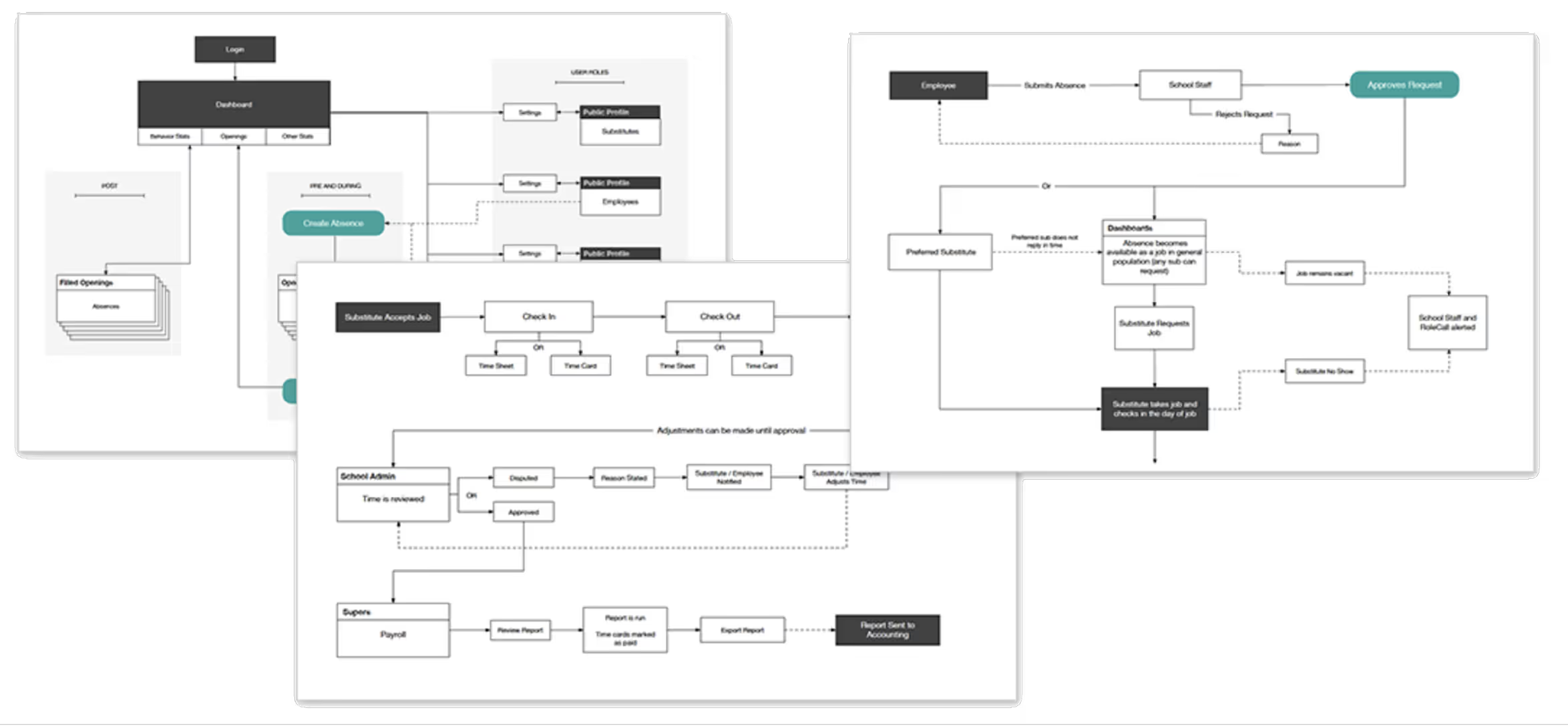
Key Interfaces
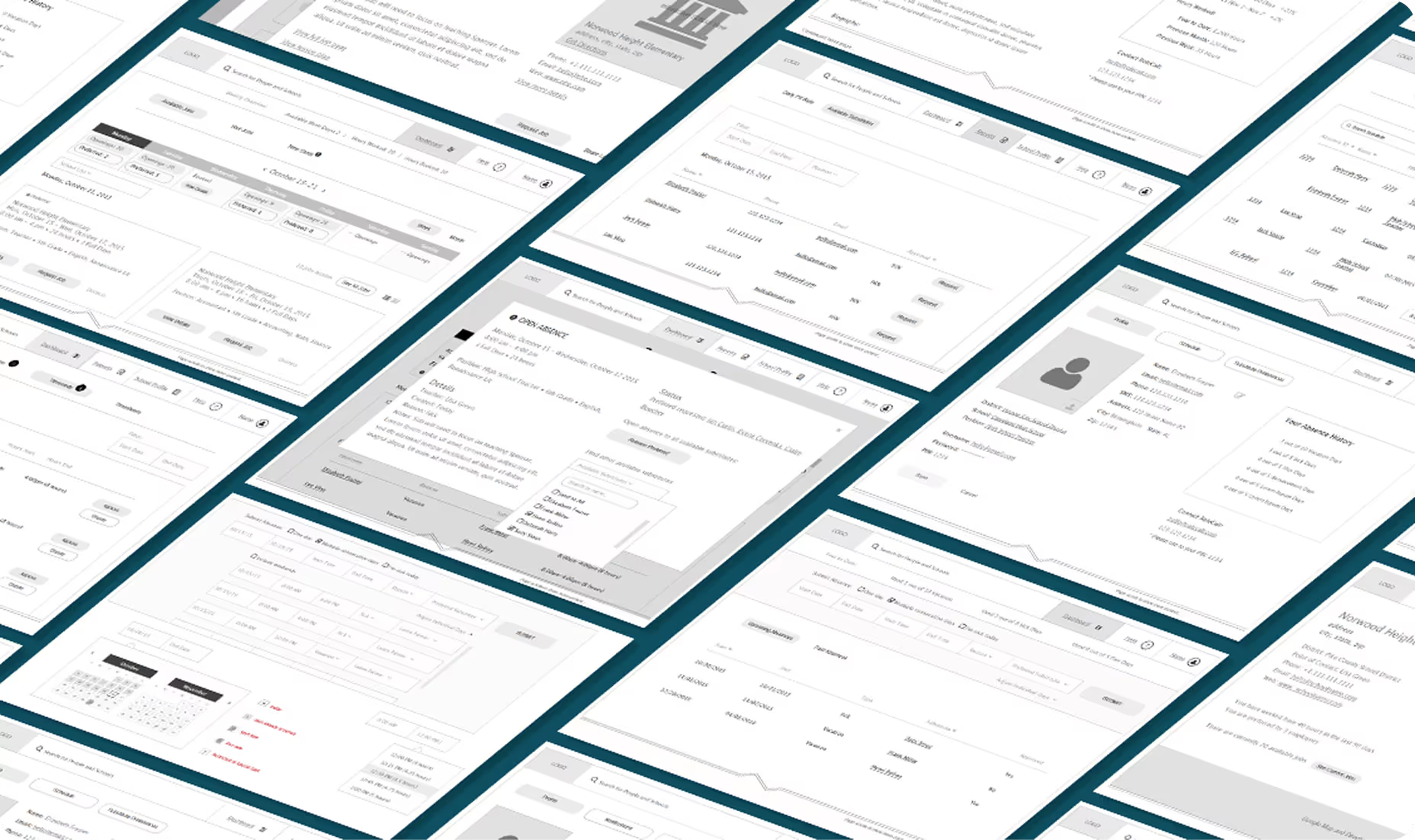
Employee Dashboard
At-a-Glance Overview – Employees can instantly see their used and remaining absences.
Streamlined Absence Creation – A simplified workflow captures only essential details. Teachers can attach lesson plans or notes, and easily request preferred substitutes when available.
Fewer Clicks, More Clarity – Upcoming and past absences are displayed with clear status indicators. A quick up/down vote feature helps improve sub matching over time.
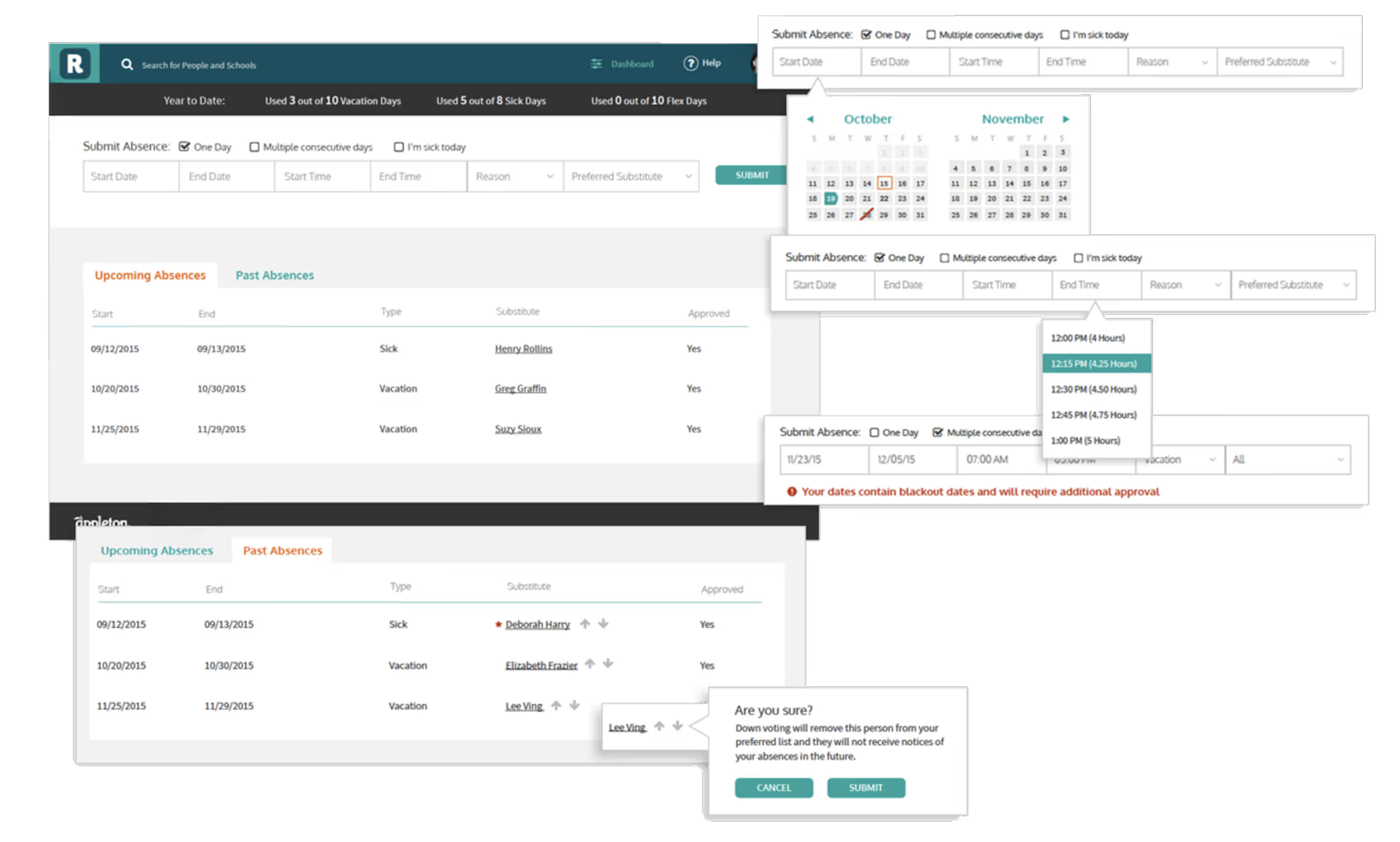
Substitute Dashboard
Job Management Made Simple – Color-coded weekly or monthly calendars make scheduling intuitive, with clear visibility into preferred jobs and any timecard issues.
Smart Filters & Notifications – Subs receive alerts when requested for jobs or when new opportunities match their preferences.
Personalized Experience – Availability and notification preferences refine how jobs are surfaced, ensuring relevancy and engagement.
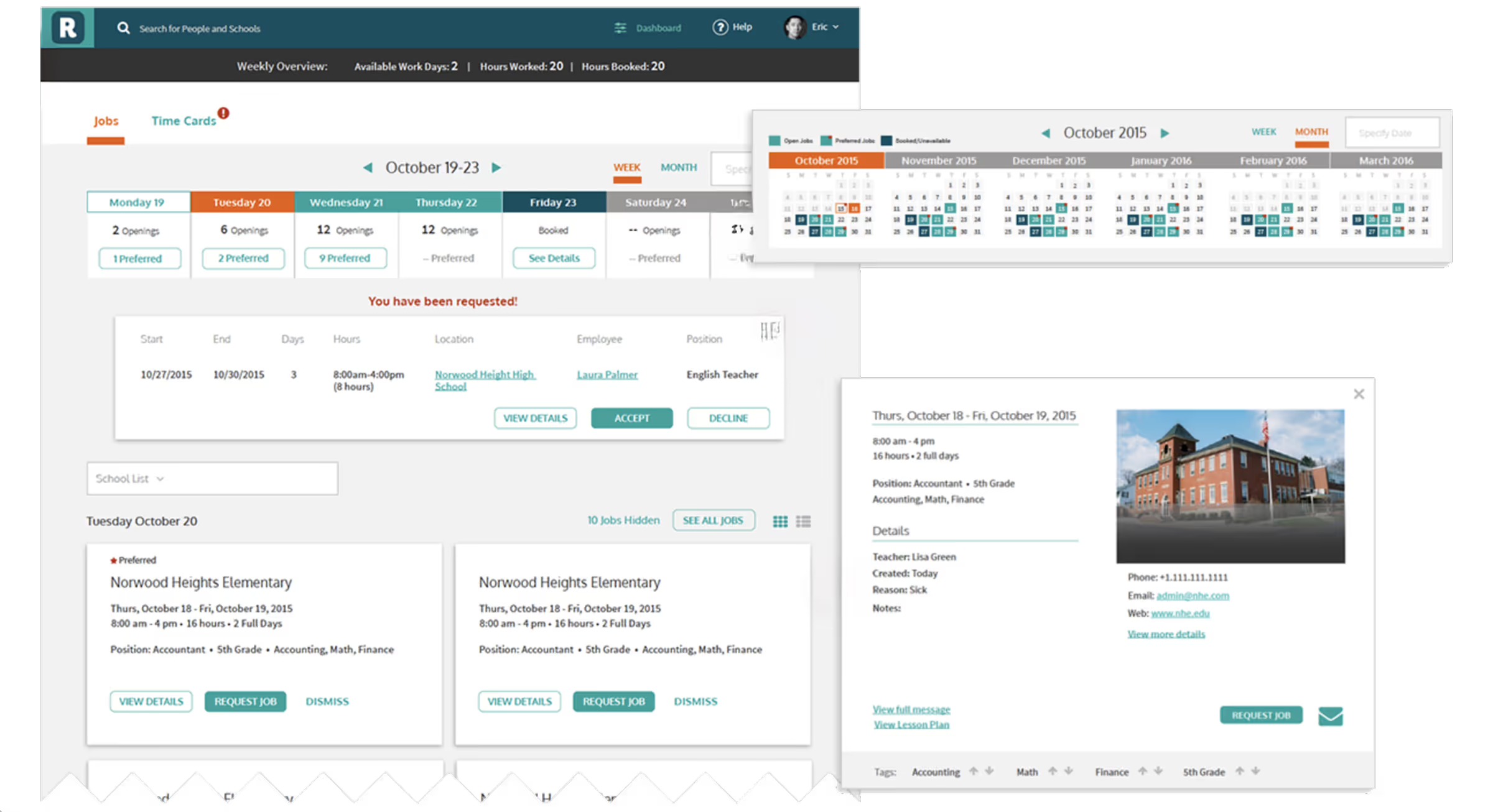
Administrator Dashboard
District Health at a Glance – Real-time data on fill rates, vacancies, and attendance highlights priority areas.
Efficient Absence Management – Admins can review, approve, or reassign open absences in just a few clicks.Streamlined Time Tracking – Sub timecards are easily reviewed and approved; optional self check-in tools save administrative time.
Data-Driven Decisions – Historical and real-time reports support staffing insights and long-term planning.
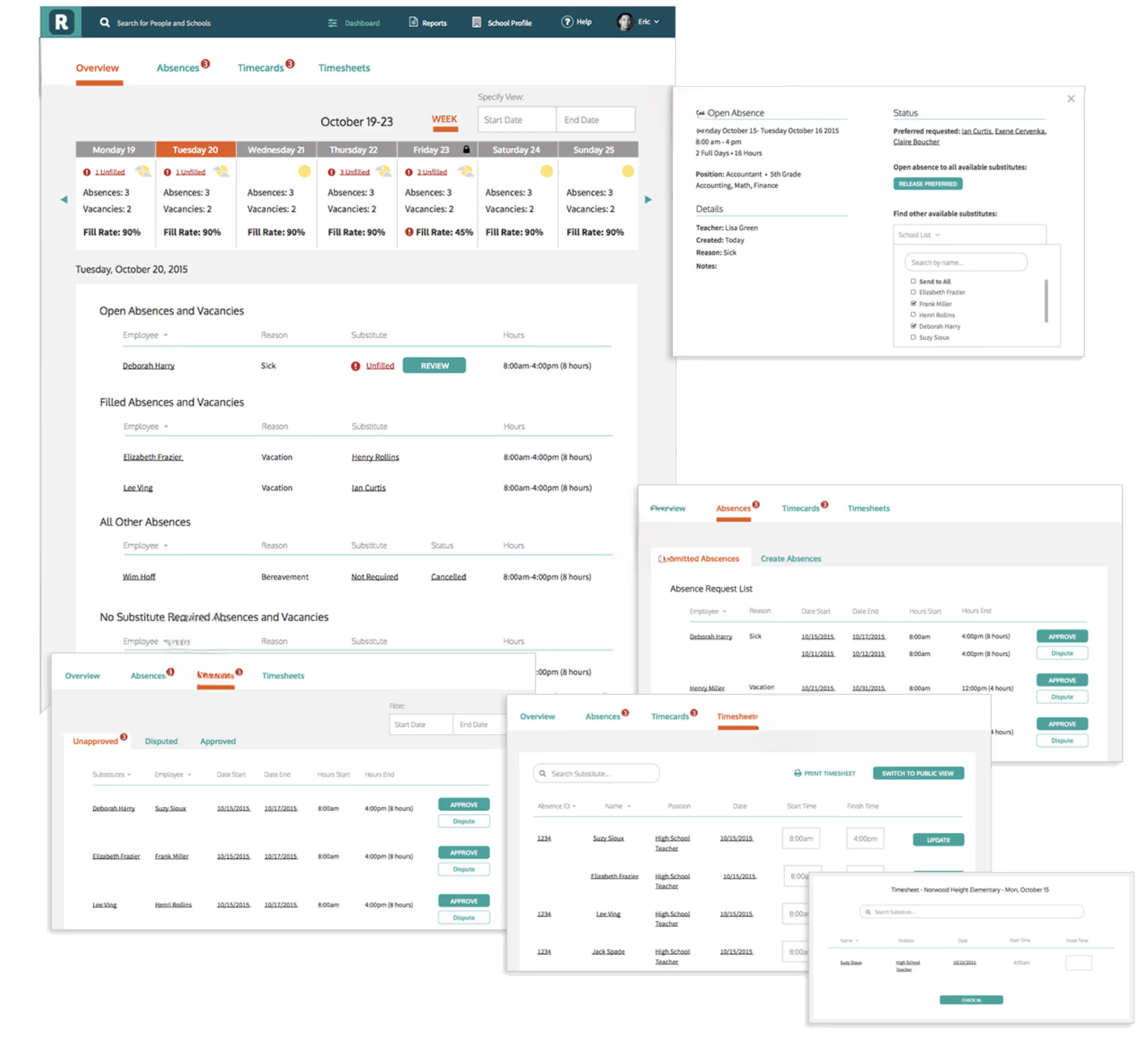
Mobile UI
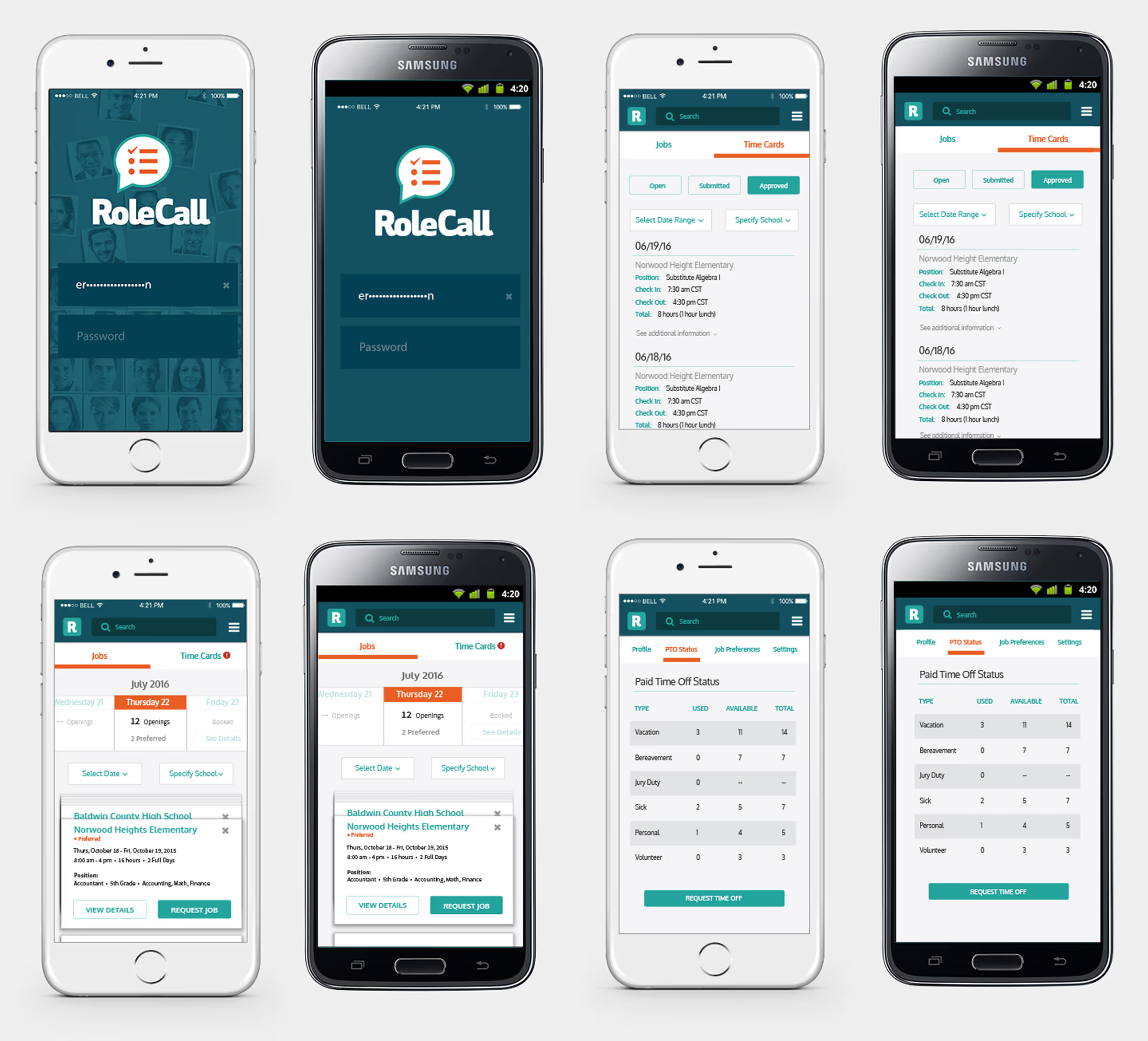
Visual Branding
Smart • Accessible • Friendly
RoleCall’s visual identity was built around clarity and trust. A clean, approachable interface and vibrant yet balanced color palette reinforce usability and warmth. Typography, iconography, and interaction patterns were developed as part of a unified design system to ensure consistency and scalability.
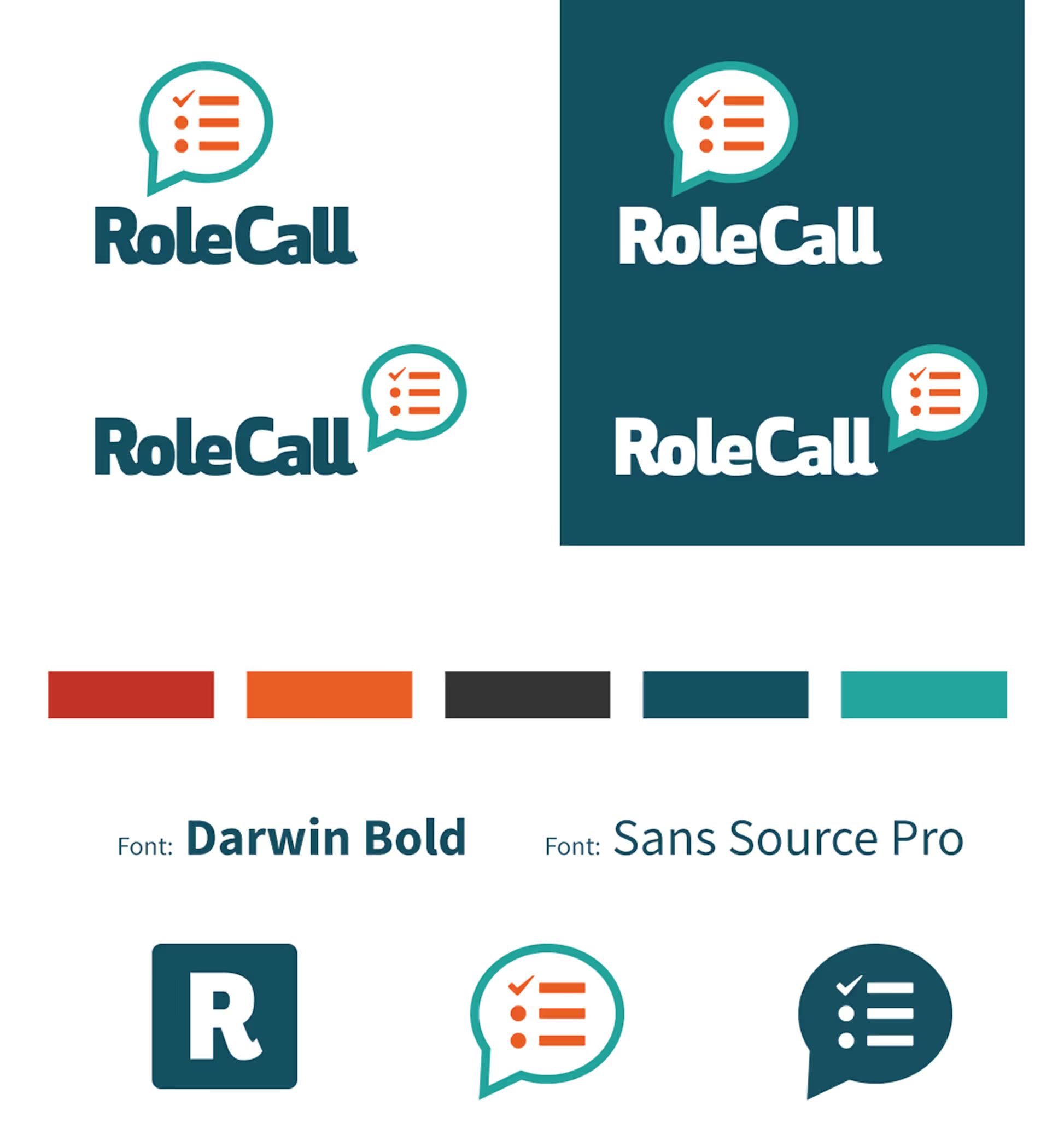

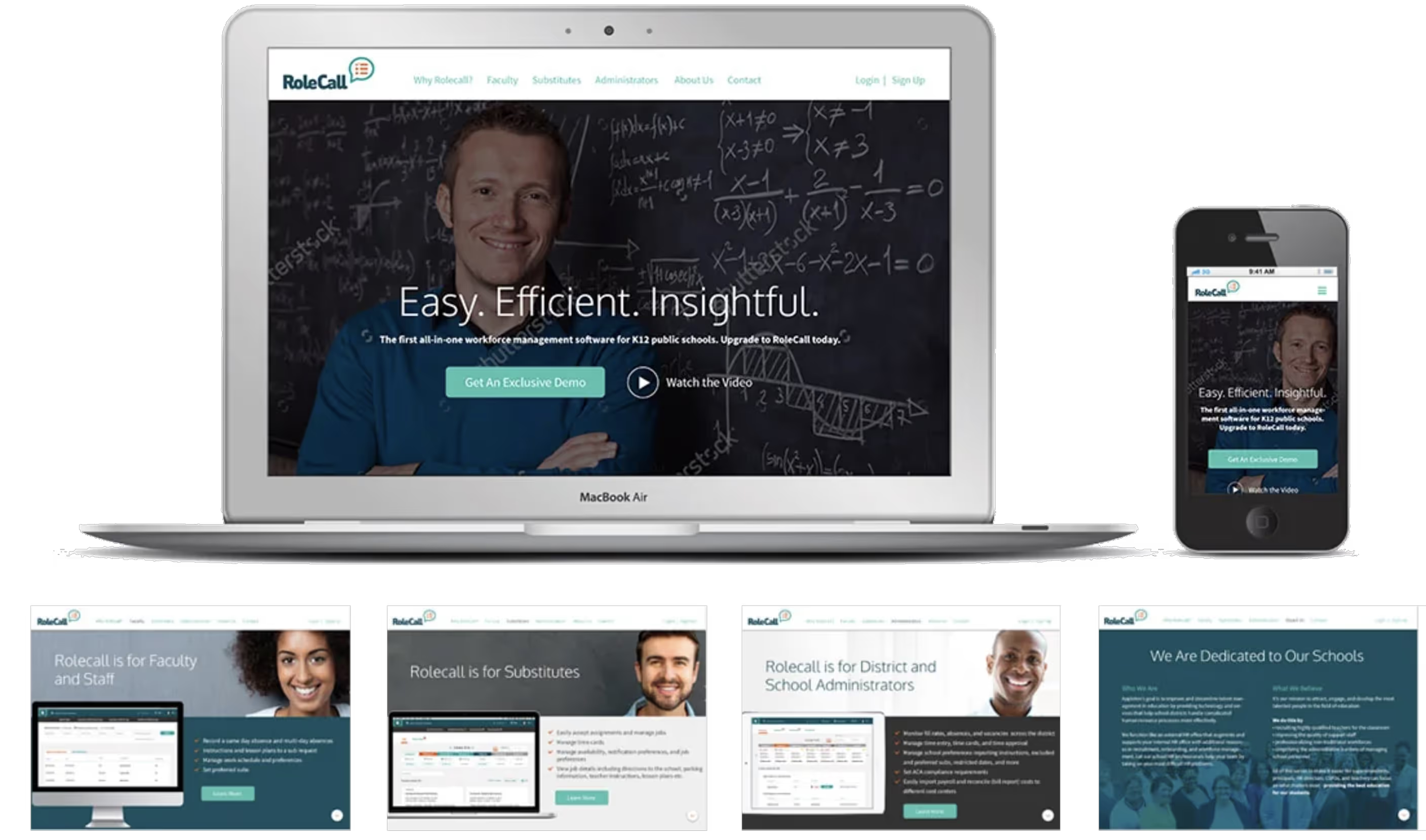
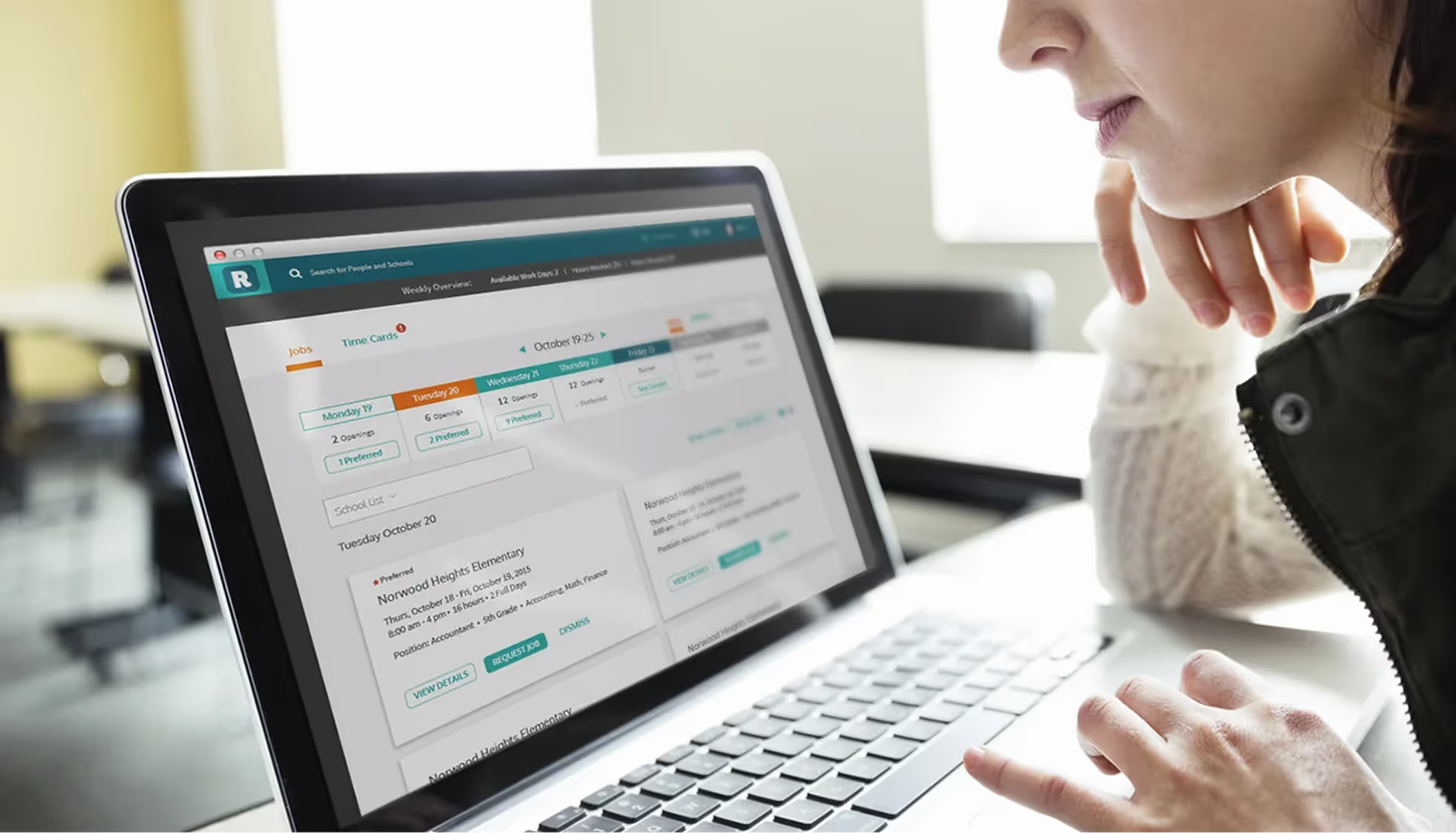
You can reach out directly using the links in the footer below, or head back to the Projects page to see more of my work.
